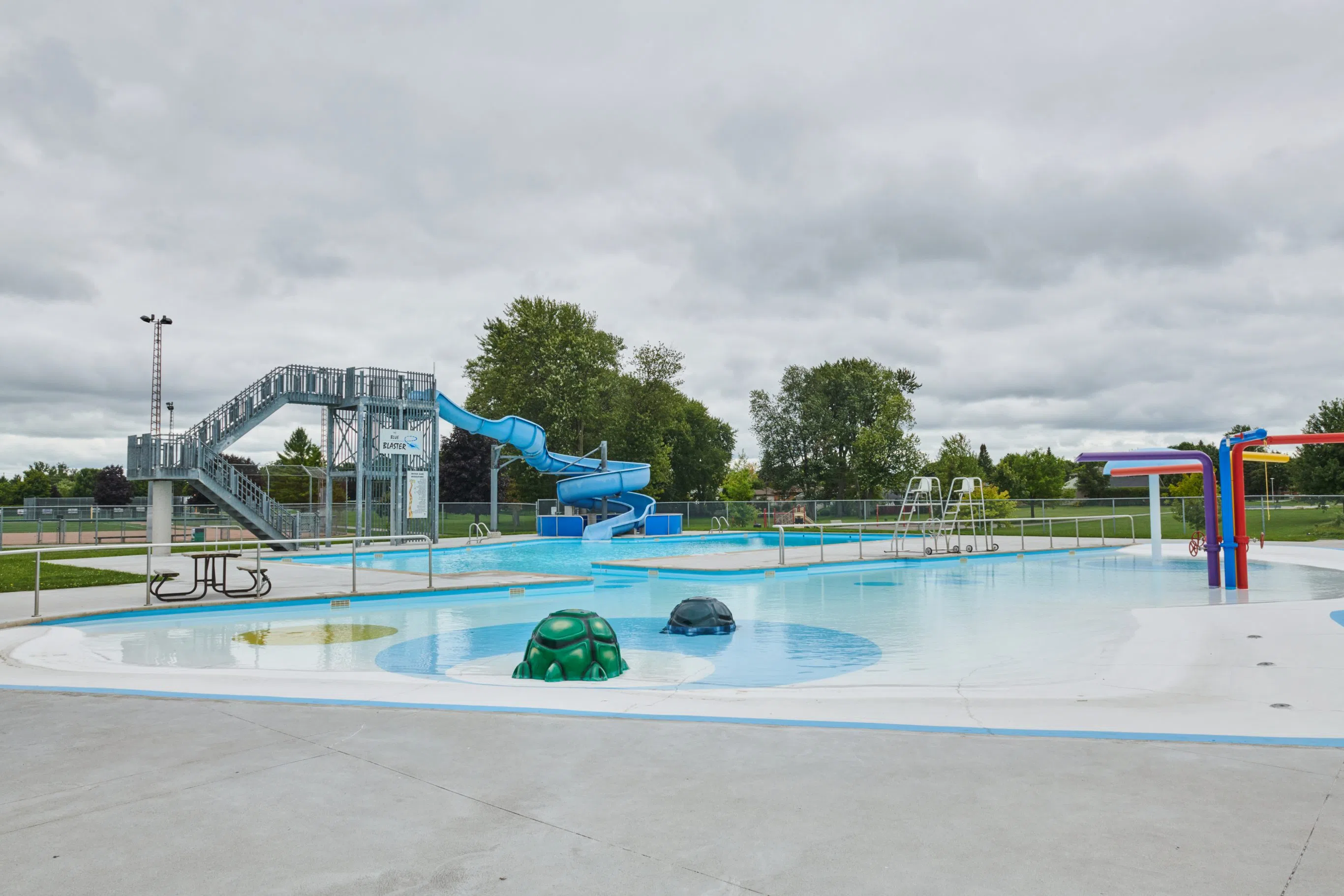Ontario is set to welcome warmer than usual temperatures this coming summer.
With the 2023 summer forecast released by the Farmer’s Almanac calling for increased temperatures across the country and a “warm-to-hot, soggy” summer for Ontario, Londoners will need to find ways to keep cool.
The weather has already begun to increase in May and the city of London has started their own preparations with the opening of spray pads across the city.
“We do have 10 spray pads that are already open thanks to the beautiful weather we’ve been experiencing, so that Londoners can start using them earlier this year,” says Joannah Campbell, supervisor for aquatic services in the city of London.
Spray pads at Riverbend Park, Oakridge Optimist Park, Ed Blake Park, Bonaventure Meadows Park, Rowntree Park, Queens Park, Ivey Park and South London Community Centre have already been opened for the season and the remaining spots are expected to open up before the weekend.
“One thing that we’re proud of is that we’ve opened a few newer spots (spray pads) recently and we’re working on some brand new ones,” says Joannah Campbell. “Constitution Park in the north-west opened within the last 5 years or so. We’re also working on another one in the north-west in the Foxfield neighbourhood that they’re just working on now.”
Spray pads located across the city are completely free to use and are interactive ways that families and individuals can use to keep cool.
Along with the spray pads, the city also offers outdoor and indoor pools for public use, offering various swimming lessons, parent and toddler swims, Aquafit times, and more.
“The 4 indoor pools are open all year, so even when we have those unseasonably warmer than usual days like we had in April, people are always welcome to come by and cool off.”
The need to cool down will become more important year over year with warmer temperatures becoming more common and worsening.
The temperatures predicted by the Farmer’s Almanac are in line with patterns that the province and the country have been seeing over the years, with 2021 breaking numerous heat records for cities across the country and 2022 being the third warmest summer on record for Canada.
The UN climate panel released a report last year showing that global surface temperature will continue to increase until at least the middle of the century, with global warming continuing to rise unless drastic reductions in carbon dioxide and other greenhouse gas emissions occur in the coming decades.
This has already shown this year with the warmer than usual temperatures in April and May as well as with the ongoing wildfires in Alberta and British Columbia.
“I think it’s very easy to feel overwhelmed by this,” says Katrina Moser, associate professor of geography with the University of Western Ontario, who talks about the impact of climate change on our world today.
“It seems so big and you think, “well, what can I do, I’m just one person.” The thing is, if a lot of people say, “I can do something,” suddenly you have a mass of people that are trying to make a difference.”
The country and the city of London are beginning to see and feel the effects of climate change, understanding the need to invest in keeping residents cool.
“We know that they (spray pads) are immensely valuable, especially as a free recreational activity,” says Campbell.
“Somewhere that can give Londoners a safe place to cool off on those hot summer days. We know that we’ll continue to experience more and more heat alert days each year, so having something that staff and Londoners alike can find from 9am to 9pm where they can cool off and go to a public park. It’s something we highly value and prioritize.”
While people are beginning to get excited for the warmer weather and more opportunities to make use of public amenities outside, Moser left one final thought as both London and Canada get ready for the “warm-to-hot, soggy” season.
“I hope that people will look, listen, and see the indications that this is the time for us to really think about climate change and come together as a big global community to tackle this problem to really focus on reducing fossil fuel emissions.”







